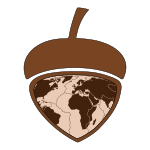|
|
|
|
Nuts second workshop Announcement: Registrations for 2025 workshop are available here. Welcome to the Réseau Numérique en Terre Solide (NuTS), a CNRS thematic network (RT) that aims to foster the community of developers and users of numerical tools for solid earth science. Our goal is to make this community more visible, efficient, and informed through a series of conferences and training courses on digital science, from data manipulation to high-performance scientific computing. We are excited to announce the second workshop of the RT NuTS, which will take place from May 28th to May 31st in Strasbourg. This workshop is dedicated to "inverse problems" in solid earth science with a focus on numerical and computational aspects. It is divided into two parts: the first two days will feature scientific talks, and the last two days will offer hands-on practicals on two topics (see the program below). During the practicals, attendees will have the opportunity to work with Jupyter Notebooks and the Python language, using the cutting-edge computing resources provided by the GLiCID mesocentre, including a series of A100 GPU. The practicals will cover various topics, from Bayesian inference and uncertainty quantification hands-on to automatic differentiation in the Julia language. We are planning a poster session dedicated to inverse problem-related studies, especially those that are in progress and require further discussion. We welcome contributions from students and researchers interested in sharing their plans and unfinished work with the community. We invite you to join us for this exciting workshop, where you will learn from experts in the field, gain hands-on experience with inverse problem-related practical programming, and network with other researchers in solid earth science. Do not miss this opportunity to advance your skills and knowledge in numerical and computational science. To register for the workshop, please click on the "Register Now" button. If you have any questions or need assistance with registration, please don't hesitate to contact us. We look forward to seeing you in Strasbourg! The registrations are now closed Event location:
EOST auspices - Manufacture des Tabacs More details on how to get there can be found here. Program Program Tuesday, May 28th (Afternoon) 14h00 Introduction: Yann Capdeville (NuTS, LPG, CNRS, Nantes U.) 14h15 Poster pitches: concise oral presentation of the posters Lahcene Bellounis (ISTerre) "Development of a new numerical tool for the inversion of potentiel field data in the Krafla geothermal area" Benoit TAUZIN (LGL-TPE) "A Deep Learning Neural Network for Controlling Vehicle Weight, Speed, and Lane from Telecom Dark Fiber Distributed Acoustic Sensing" Feyza Arzu (geoazur) "Static and Quasi-Static Inversion of Fault Slip During Laboratory Earthquakes" Saksham Rohilla (IPGP) "Constraints on the nature of the median ridge within the Chain Transform Fault inferred from travel time tomography of downward continued MCS data" Cyrielle Colin (LGL-TPE) and Marine Laporte (LGL-TPE) "b-Bayesian : a novel approach for statistical seismology" Jan Premus (geoazur) "GAN prior for dynamic earthquake inversion" Zhu Qiwen (IPGP) "Full-waveform tomography illuminates 3-D anatomy of the Tibetan Plateau" Giusi Ruggiero (GeoRessources) "2D downscaling inversion for structural uncertainty quantification" Julien Herrero (GeoRessources) "Transdimensional Inversion of Post-Stack Seismic Data with a Two-Dimensional Dipping Layer Parameterization" Ludovic Bodet (Metis) "Towards automated mechanical characterisation of railway earthwork by active and passive seismic" Xavier Vergeron (Géosciences Montpellier) "How can gravity signals be inverted to constrain the thermal structure of a subducting plate" Jeremie Giraud (ECD) 15h00 Special: Emmanuel Chaljub (ISTerre). Title: ¨FormaTerre in Data Terra: contribution of the Solid Earth community to the E-infrastructure of the Earth & Environment System. 15h30 Pause 16h00 - 18h00 Plenary Lectures:
18h30 Ice breaker. Kooma, 6 Cr des Cigarières Wednesday, May 29th (all day) 9h00-10h30
10h30-11h15 Pause, Group photo 11h15-12h15
12h15-14h00 Repas et Posters 14h00-15h30
15h30-16h15 Pause 16h15-17h15
17h15-18h00 Round table, INSU-TS prospective discussion
19h00 Conference dinner. Restaurant "Au Cerf d'or", 20 rue d'Or, (and 6 Pl. de l'Hôpital), Strasbourg Thursday, May 30th (all day) Morning (9h00-12h00): Practicals: Bayesian inference with Markov chain Monte Carlo sampling Thomas Bodin (LGLTPE) Description: This short course will introduce Bayesian inference and uncertainty quantification. We will see how a probabilistic framework can be used to tackle highly non-linear and ill-posed inverse problems, and how data errors can be propagated towards model uncertainties. Moving beyond theory, the lab component of the course will introduce participants to Markov Chain Monte Carlo methods, a computational tool for approximating probabilistic solutions in geophysical inverse problems. Participants will gain practical experience by coding this algorithm from scratch in a simple toy problem. Afternoon (14h00-18h00): Practicals: High-performance computing in geosciences and adjoint-based optimisation with Julia on GPUs (part 1)
Ludovic Räss (ETH Zurich) and Ivan Utkin (ETH Zurich)
This workshop offers hands-on experience in high-performance computing for geosciences, focusing on solving and constraining partial differential equations (PDE) using GPUs. The goal of the workshop is to develop a fast iterative GPU-based solver for elliptic equations and use it to:
1. Solve a steady state subsurface flow problem (geothermal operations, injection and extraction of fluids) 2. Invert for the subsurface permeability having a sparse array of fluid pressure observations We will not use any "black-box" tooling but rather develop concise and performant codes (300 lines of code, max) that execute on GPUs. We will also use automatic differentiation (AD) capabilities and the differentiable Julia stack to automatise the calculation of the adjoint solutions in the gradient-based inversion procedure.
Friday, May 31th (all day) All Day (9h-12h00 then 13h30-15h30) Practicals: High-performance computing in geosciences and adjoint-based optimisation with Julia on GPUs (part 2) |


